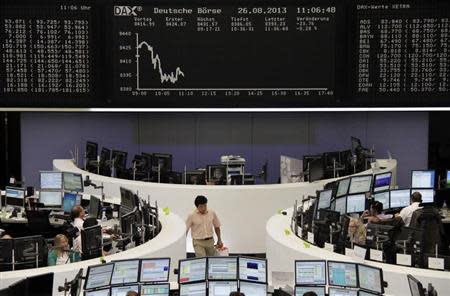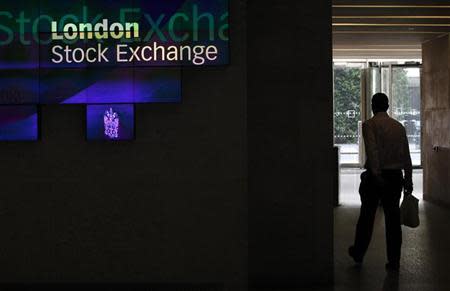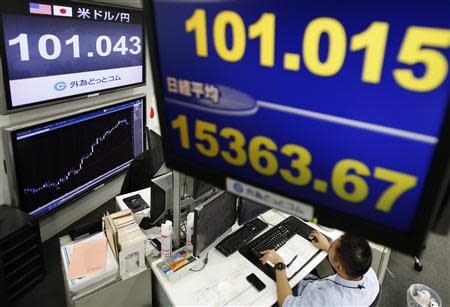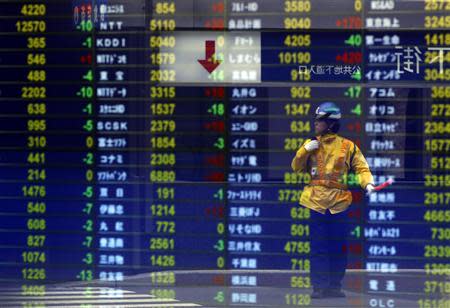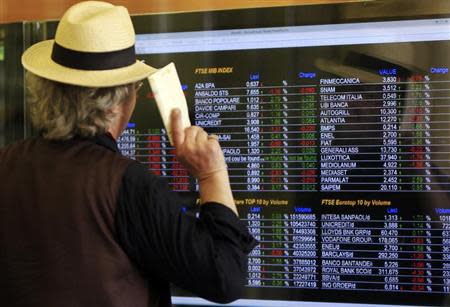Global shares droop as oil prices climb on Iran deal doubts
By Marc Jones LONDON (Reuters) - European shares and the dollar slipped on Tuesday as oil prices climbed amid doubts over the real impact of the Iran nuclear deal and renewed political tensions in the East China Sea. The pan-European FTSEurofirst 300 share index struggled to settle in early trading and was down 0.3 percent by 1030 GMT as the approaching month-end added to a general mood of caution. Having already reversed Monday's $3 drop overnight, oil prices pushed back above $111 a barrel in London as investors continued to question how quickly the deal with world powers was likely to see Iranian oil back on the market. "The interim six-month 'freeze' agreement just reached on Iran's nuclear program should not have any impact on oil prices, aside from short-term sentiment, because core sanctions on oil and banking have not been touched," Societe Generale said in a note. "If and when (a comprehensive agreement) happens, it could take Iran three to nine months to recover the 1 million barrels per day in production lost since 2011." An escalation of political tensions in parts of Asia were also in focus and helped keep gold near a one-week high. The White House has called China's demands that airlines inform Beijing when flying over disputed islands in the East China Sea, "unnecessarily inflammatory. Thailand was also in the spotlight as anti-government protesters stepped up their bid to oust Prime Minister Yingluck Shinawatra, while talk that the central bank had intervened in the currency market saw the baht bounce from an 11-week low. DOLLAR SLIPS The China tensions kept the dollar under pressure after disappointing housing data had put it on the back foot on Monday. The dollar index was down 0.3 percent at 80.700 as it pulled away from last week's high of 81.29. The euro climbed 0.3 percent to $1.3552, while the yen rebounded to 101.40 to the dollar. The weaker-than-expected housing data had bolstered the view the Federal Reserve will wait a while longer before attempting to scale back its stimulus program. It had squeezed down the yields on U.S. Treasuries overnight, and euro zone government bonds followed suit as investors kept a close eye on the ECB for any signs it is contemplating more easing. Currency traders were largely circumspect about the yen's bounce. The dollar had risen almost 2 percent against the Japanese unit in the last three sessions and it was expected to stay under pressure after some at the Bank of Japan's latest meeting expressed lingering concerns about growth and inflation. Tokyo's Nikkei benchmark , as usual, had felt the negative effects of the stronger yen as it shed 100 points though it remained well within reach of a 5-1/2 year peak reached in May. "We remain bullish on the dollar heading into 2014 but remain tactically cautious on establishing longs, with a number of U.S. dollar pairs already trading at the high end of their ranges and data unlikely to be consistent enough to support expectations for an early Fed tapering," analysts at BNP Paribas wrote in a note. (Reporting by Marc Jones; Editing by Hugh Lawson)
